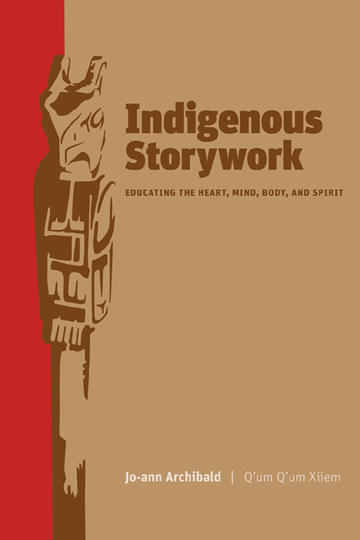Jo-ann Archibald worked closely with Coast Salish Elders and storytellers, who shared both traditional and personal life-experience stories, in order to develop ways of bringing storytelling into educational contexts. Indigenous Storywork is the result of this research and it demonstrates how stories have the power to educate and heal the heart, mind, body, and spirit. It builds on the seven principles of respect, responsibility, reciprocity, reverence, holism, interrelatedness, and synergy that form a framework for understanding the characteristics of stories, appreciating the process of storytelling, establishing a receptive learning context, and engaging in holistic meaning-making.
Jo-ann Archibald, also known as Q’um Q’um Xiiem, from the Stó:lo Nation, is Associate Dean for Indigenous Education in the Faculty of Education at the University of British Columbia.
Archibald’s research studies how people, including herself, live with their stories; moreover, how people can live well with their stories. […] Here, stories are not material for analysis; they are not folklore with its implication of museum culture, and they are certainly not “data.” Stories take on their own life and become teachers. […] In her spiraling, iterative style, Archibald gets as close as any book I have found to a truly narrative pedagogy, as opposed to a pedagogy of narrative. […] To stay with her writing is to experience how stories work in and on a life.
Jo-Ann Archibald, Q’um Q’um Xiiem, has gifted us here with a sensitive glimpse into the thoughts of her Sto:lo elders. In doing this, she presents folklorists with a great deal of useful emic information. And she offers guidelines for educators who hope to use story with children. Her elders show us how to not just tell stories … but how to make meaning of the tales through storywork.
[The] author’s self-reflection on the multiple roles she balanced as a researcher is appreciated, and her text serves as an excellent testimonial for the efficacy and successes of researchers working collaboratively with indigenous communities.



